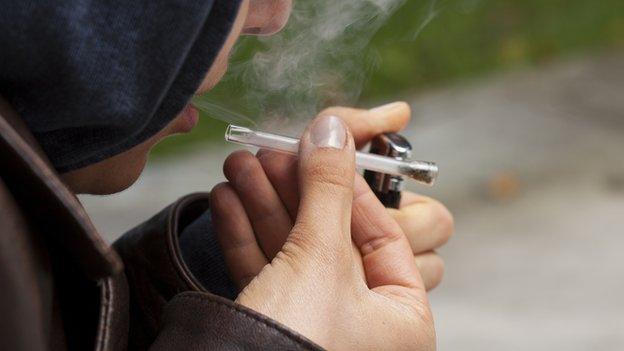Legal highs and chemsex drugs targeted in new strategy
- Published
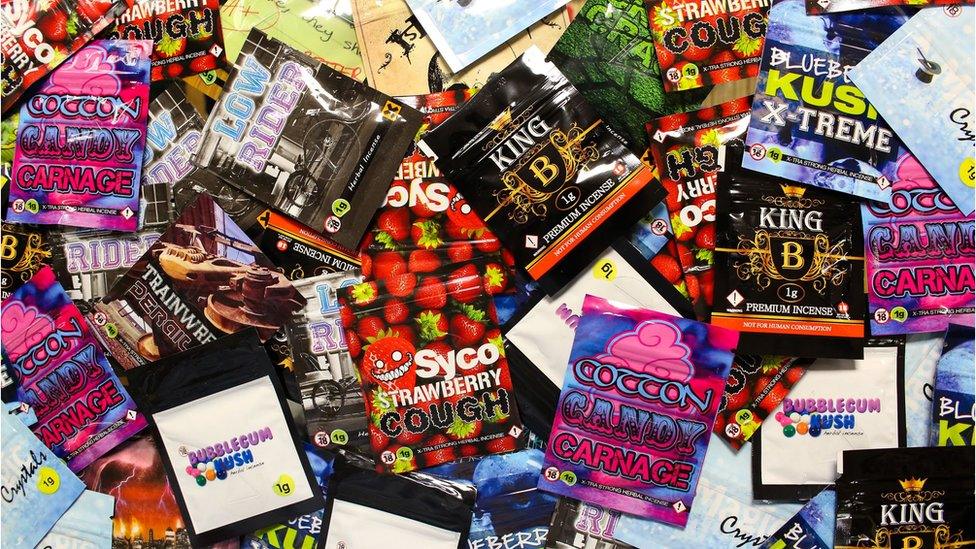
New legislation to tackle "legal highs" was introduced last year
So-called legal highs and chemsex drugs will be targeted in a government move aimed at cutting illicit drug use.
Fewer than one in ten adults in England and Wales now take drugs, according to the Home Office, but drug-related deaths have risen sharply.
The strategy, external will target psychoactive substances, performance-enhancing drugs and the misuse of prescribed medicines.
Drugs charities praised the strategy's focus on recovery, but raised concerns that budget cuts could affect delivery.
The strategy applies across England, with some elements spreading to Wales and Scotland.
'Emerging substances'
New psychoactive substances (NPS), formerly known as legal highs, mimic the effects of other drugs, such as cannabis.
Harry Shapiro, from Drugwise, says drugs on the streets are "at the highest purity levels"
Last year, laws were introduced to criminalise the production, distribution, sale and supply of them, but they continue to fall into the hands of users.
Chemsex - using drugs as part of sexual activity - often involves crystal methamphetamine, GHB/GBL and mephedrone.
Government studies show the practice increases health risks, both mentally and physically, including aiding the spread of blood-borne infections and viruses.
It comes as the number of drug deaths in England and Wales increased by 10.3% to 2,479 in 2015, following rises of 14.9% in 2014 and 19.6% in 2013.
Home Office statistics show the number of adults aged between 16 and 59 who take drugs is at now at 8% - a 2.5% drop from 10 years ago.

Analysis
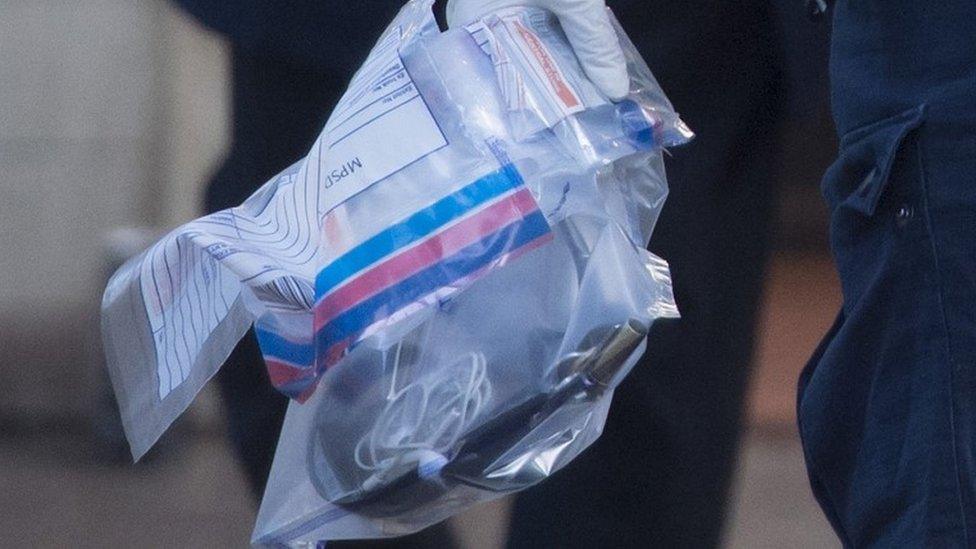
By Danny Shaw, BBC home affairs correspondent
In December 2010, with Home Office priorities centred on police reform and immigration, the last government drug strategy felt like a box-ticking exercise. Just 25 pages long, it contained little detail or original thinking and just one paragraph on the problem that was later to engulf prisons, legal highs.
The theme of the last strategy was supporting people to live a "drug-free life". It emphasised the need for "abstinence" and said too many users were reliant on drug-substitute treatments such as methadone.
The 2017 strategy makes no mention of abstinence or limiting methadone use, but it sets more demanding and wide-ranging measurements of treatment success.
At double the length of the previous document, there is a sense that the Home Office is more focused on the issue than before, prompted perhaps by the recent rise in drug deaths and the need to prevent a new generation of drug users sparking a fresh crime-wave.

The strategy includes:
The appointment of a national "champion" to help increase drug recovery rates
More "targeted interventions" to give addicts a "tailored" treatment, with employment, health and housing support
New education programmes for young people to highlight the dangers of drug use
Stronger border controls and greater intelligence sharing with other countries
Support for prison officers help drug offenders recover in prisons
Home Secretary Amber Rudd, who will chair a new cross-government drug strategy board, said she was "determined to confront the scale of this issue".
The chief executive of the drug treatment campaign Collective Voice, Paul Hayes, welcomed the fact that recovery was being put "at the heart" of the government's response.
While also welcoming the shift in the government's focus, Harry Shapiro, director of online advice service DrugWise, said he was concerned about a lack of funding.
"It has shifted from the 2010 strategy [when] there was an emphasis that recovery from addiction was just about abstinence," he told BBC Radio 4's Today programme.
"Anyone working in the sector knew that that wasn't the case, because if you are going to recover, you have got to have something to recover to.
"The government has recognised that more needs to be done in that area, but it all has to be delivered at a local level and local authorities are struggling with budgets, drug services are suffering from cuts."
Calls for decriminalisation
Ron Hogg, the Police and Crime and Victims Commissioner in County Durham, said he agreed with a focus on helping users recover, but said it was "shameful" the strategy did not look into decriminalising drugs.
He said that in Portugal - where drugs were decriminalised 12 years ago - drug use, drug-related deaths and the number of people injecting had all fallen.
Home Office Minister Sarah Newton said she had looked at arguments for decriminalisation, but added: "When you look at all the other available evidence, we just don't agree."
The National Police Chiefs' Council's lead for drugs, Commander Simon Bray said police "will play our part" in delivering the plan.
- Published7 April 2016
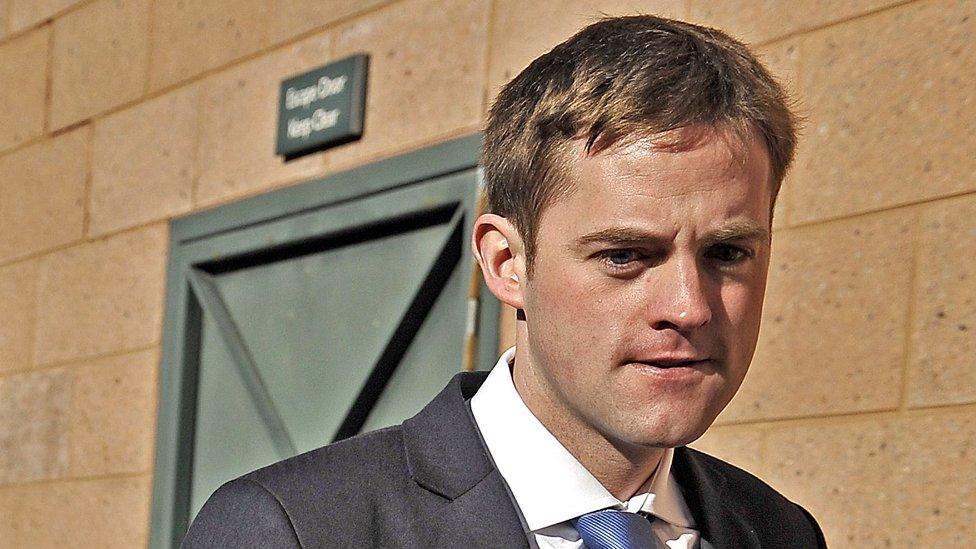
- Published14 November 2016
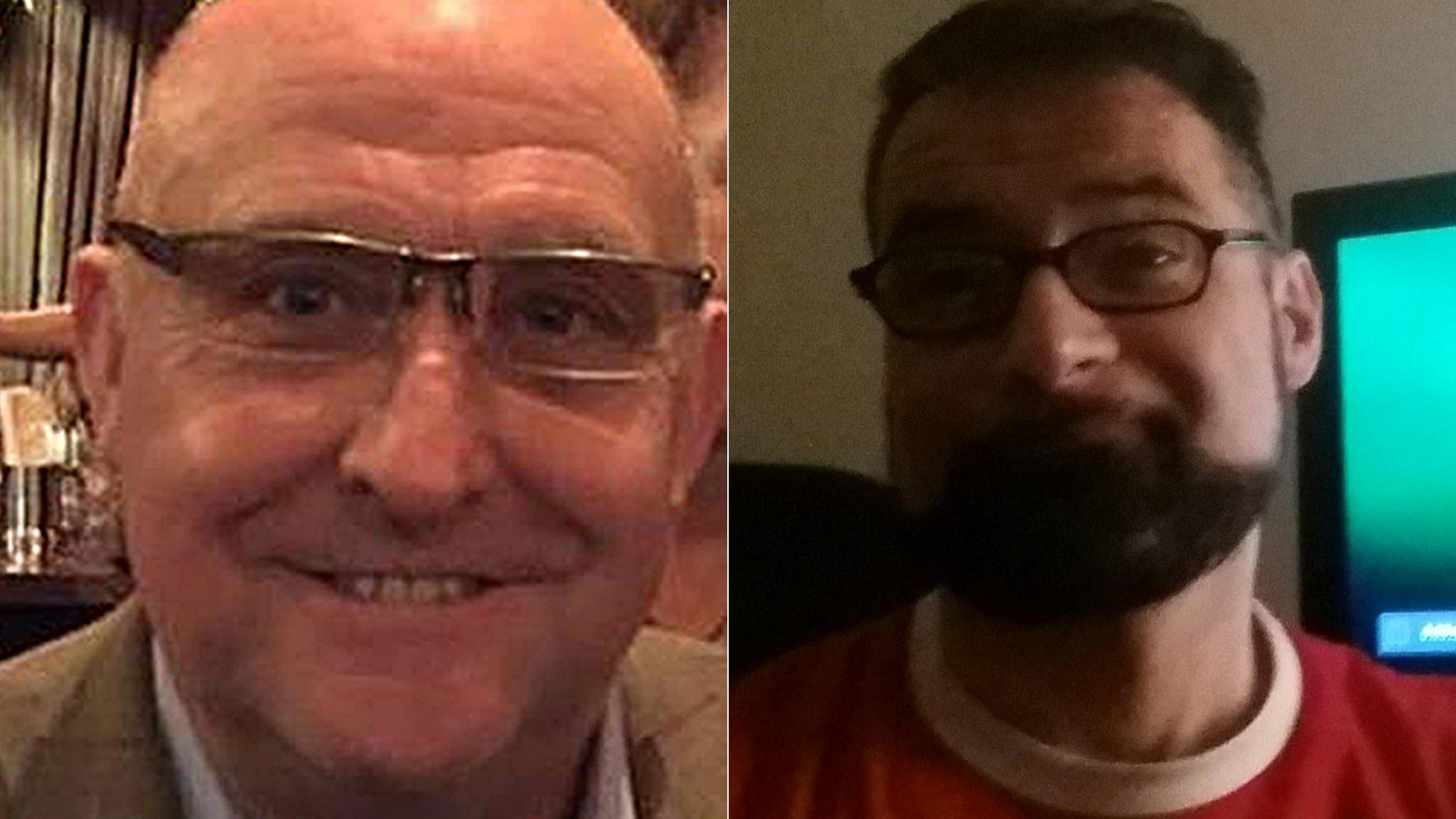
- Published2 July 2015
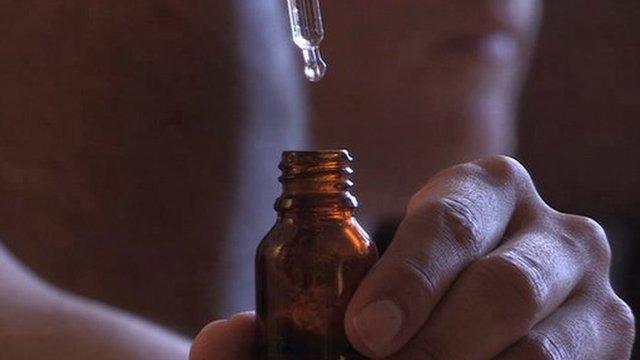
- Published26 May 2016
